Colours and Emotions
Colours and emotions are closely related. They can make us feel happy, sad, hungry and relaxed, or even influence our thoughts, feelings and behaviours. Chromotherapy, or colour therapy, is the science of using colours to adjust body vibrations to frequencies that result in health and harmony. Read more about colours and their wonders in an article by Dr. Theingi Maung Maung, Associate Professor at the Community Medicine Unit of AIMST University. The article titled ‘The wonder of power in colour’ was featured in the ‘Letters to the Editor’ column of NST on 11 September 2021. Click HERE to read.
Covid-19 Pandemic and the Migration
The Covid-19 pandemic and the migration to online learning have given rise to emotional states such as anxiety, fear, frustration, and disappointment, impacting how students learn today. Associate Professor Dr. Leela Anthony, Deputy Dean for Research, Postgraduate & Administration at the Faculty of Medicine AIMST University, has outlined four strategies to create an emotionally safe environment for optimum learning. The write-up titled ‘How to Manage Students’ Emotion’ was featured in the ‘Letters to Editor’ column of NST on 6 September 2021. Click HERE to read.
Eye Care During the Pandemic
Mucormycosis or Dubbed as the ‘Black Fungus’
Dr. Veena Naik, an associate professor in Oral Medicine and Maxillofacial Radiology, Faculty of Dentistry AIMST University, has written on the Mucormycosis or dubbed as the ‘black fungus.’ It is a rare but opportunistic fungal infection with a high morbidity and mortality rate. Together, she had suggested solutions to prevent black fungus infection. The said article, ‘Oral hygiene is key to keeping black fungus at bay’ got featured in the columnist section of NST on 19 August 2021. Click HERE to read.
Helping Children Make Up Lost Ground Due to School Closures
‘Helping children make up lost ground due to school closures’ is an article by Professor Datuk Dr. John Antony Xavier, the Vice-Chancellor & Chief Executive of AIMST University. As the title goes, schools, parents, and the government have a significant role in making up for the lost ground caused by school closures during the Covid-19 pandemic. The article got featured in the columnist section of NST on 18 August 2021. Click HERE to read.
Maintaining Our Daily Living Routines
Maintaining our daily living routines and connecting with others are among the six strategies to cope with the prolonged uncertainties during the Covid-19 pandemic. The strategies were outlined in an article titled ‘Six strategies to help us cope with prolonged uncertainties’ by Dr. Shivali Shamsher, senior lecturer at the Faculty of Medicine AIMST University. It got featured in the columnist section of NST on 15 August 2021. Click HERE to read.
DECELERATION OF INFECTIONS WILL NARROW CHANCES OF NEW MUTATIONS EMERGING
DROWNING, A SILENT KILLER OF OUR YOUNG
TOOTHPASTE HAS MANY BENEFITS
Associate Professor Dr. Jegarajan Pillay, a Dental Public Health Specialist and currently the Deputy Dean (Management and Research) at the Faculty of Dentistry AIMST University has come with an article titled ‘Toothpaste has many benefits’. The write-up shared some tips for maintaining a healthy mouth and it got featured in the ‘Letters to Editor’ column of NST on 23rd July 2021. Click here to read.
ALLEGATION IS RATHER A STRETCH ON REALITY IN MALAYSIA
The Vice-Chancellor and Chief Executive of AIMST University, Professor Datuk Dr. John Antony Xavier was featured in the columnist section of NST on 12th July 2021. The article titled ‘Allegation is rather a stretch on reality in Malaysia’ was written in view of the controversial Bloomberg article that suggested Malaysia is barrelling towards a failed state. The article asserts four main fault lines that portend such an apocalyptic outcome. Click here to read.
Suicide Prevention
AIMST University’s Faculty of Medicine alumnus and Miri Hospital psychiatrist Dr. Ravivarma Rao Panirselvam was featured in Suara Sarawak. He had written on suicide prevention especially warning signs and how to offer assistance to those in need. Learn more about our MBBS and Biomedical Science programmes.

